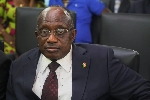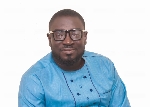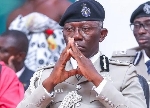Nobel Peace Prize: Ethiopia PM Abiy Ahmed wins
 Ethiopian Prime Minister
Ethiopian Prime Minister
The 2019 Nobel Peace Prize has been awarded to Ethiopian Prime Minister Abiy Ahmed who made peace last year with bitter foe Eritrea.
He was awarded the prize for his efforts to "achieve peace and international cooperation".
Mr Abiy's peace deal with Eritrea ended a 20-year military stalemate following their 1998-2000 border war.
He was named as the winner of the 100th Nobel Peace Prize in Oslo, where he will receive the award in December.
It is worth some nine million Swedish crowns (about £730,000; $900,000).
A total of 301 candidates had been nominated for the prestigious award, including 223 individuals and 78 organisations.
There had been great speculation over who would win the prize, with climate activist Greta Thunberg widely tipped as the favourite. Under the Nobel Foundation's rules, nomination shortlists are not allowed to be published for 50 years, and the organisation says any speculation ahead of the announcement is "sheer guesswork".
What has Abiy Ahmed done?After becoming prime minister in April 2018, Mr Abiy introduced massive liberalising reforms to Ethiopia, shaking up what was a tightly controlled nation.
"Peace does not arise from the actions of one party alone. When Prime Minister Abiy reached out his hand, President Afwerki grasped it, and helped to formalise the peace process between the two countries. The Norwegian Nobel Committee hopes the peace agreement will help to bring about positive change for the entire populations of Ethiopia and Eritrea."
Mr Abiy's office said the award was testimony "to the ideals of unity, cooperation and mutual coexistence that the Prime Minister has been consistently championing."
What is his background?Mr Abiy was born in southern Ethiopia's Jima Zone in 1976 to an Oromo Muslim father and an Amhara Christian mother.
He has several degrees, including a doctorate degree in peace and security issues from Addis Ababa University and a master's degree in transformational leadership from the University of Greenwich, London.
As a teenager, he joined the armed struggle against the former Dergue regime and eventually rose to the rank of lieutenant colonel, focusing on intelligence and communications services.
In 1995, he served as a UN peacekeeper in Rwanda.
During the 1998-2000 border dispute with Eritrea, he led a spy team on a reconnaissance mission into areas held by the Eritrean Defence Forces.
He joined politics in 2010, becoming a member of the Oromo People's Democratic Organization, before being elected as a member of parliament.
His tenure in parliament coincided with clashes between Muslims and Christians. He devised a lasting solution to the problem by setting up a "Religious Forum for Peace".
He is currently the youngest head of government in Africa.
Source: BBC
Trending News

KTU power cut: You're not our boss - ECG workers demand apology from Ashanti minister for causing GM's arrest
19:43
7-11pm dumsor attributed by ECG to overloaded transformers false – PURC
06:21
Mahama is not ready to be president, vote for Bawumia – Nana Kay
02:02
BVR theft: NDC demands impartial, independent probe
02:36
Late Komla Dumor’s elder sister, Mawuena Trebarh, dead
00:55
Curfew imposed on Sampa amid chieftaincy dispute
19:29
'No one above the law!': Court orders CID boss' arrest for 'blatant' disregard of summonses
01:47
New train crashes on test run
20:35
Gov't invites proposals from private partners to complete Saglemi housing project
13:53
Mahama to form joint army-police anti-robbery squads to safeguard 24-hour economic activities
19:38



